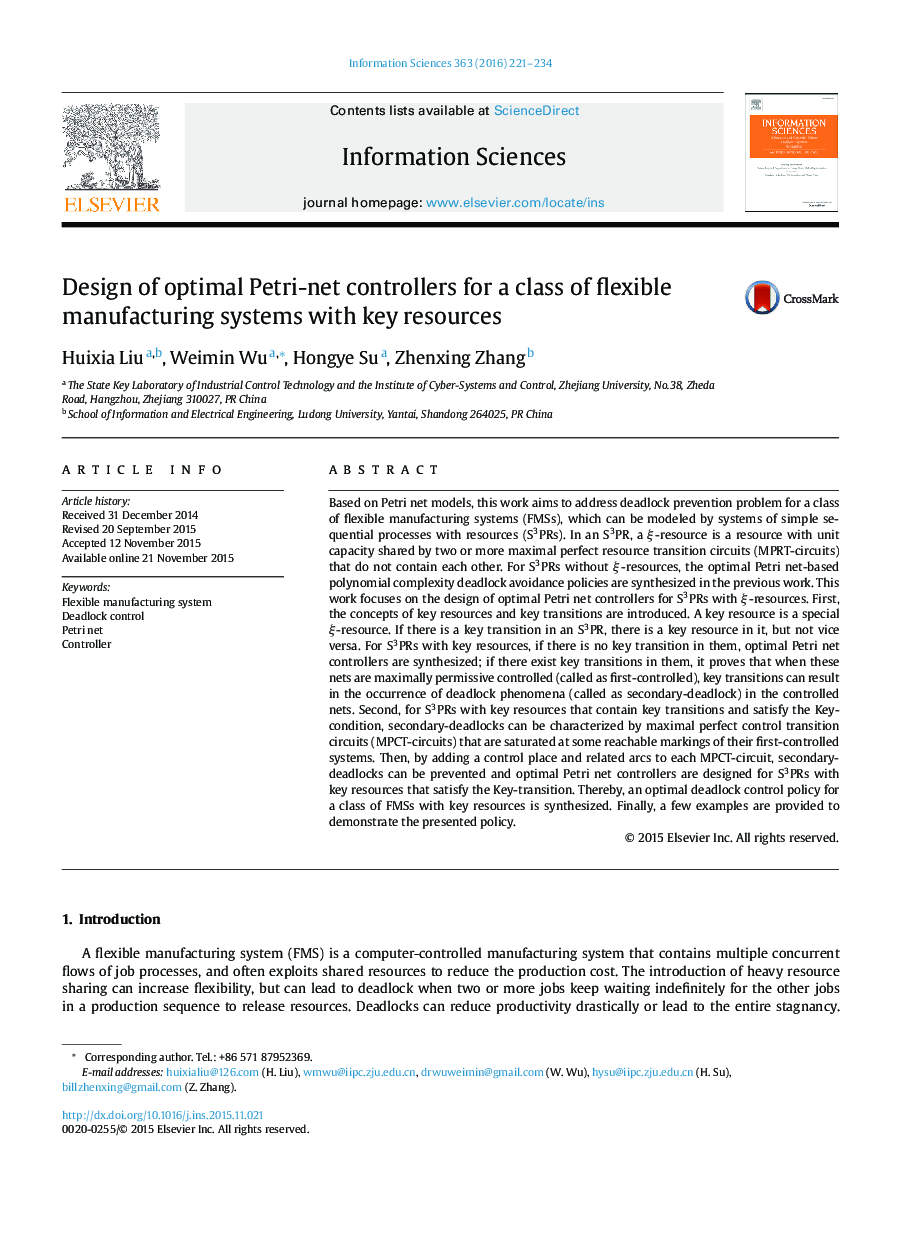| Article ID | Journal | Published Year | Pages | File Type |
|---|---|---|---|---|
| 391679 | Information Sciences | 2016 | 14 Pages |
Based on Petri net models, this work aims to address deadlock prevention problem for a class of flexible manufacturing systems (FMSs), which can be modeled by systems of simple sequential processes with resources (S3PRs). In an S3PR, a ξ-resource is a resource with unit capacity shared by two or more maximal perfect resource transition circuits (MPRT-circuits) that do not contain each other. For S3PRs without ξ-resources, the optimal Petri net-based polynomial complexity deadlock avoidance policies are synthesized in the previous work. This work focuses on the design of optimal Petri net controllers for S3PRs with ξ-resources. First, the concepts of key resources and key transitions are introduced. A key resource is a special ξ-resource. If there is a key transition in an S3PR, there is a key resource in it, but not vice versa. For S3PRs with key resources, if there is no key transition in them, optimal Petri net controllers are synthesized; if there exist key transitions in them, it proves that when these nets are maximally permissive controlled (called as first-controlled), key transitions can result in the occurrence of deadlock phenomena (called as secondary-deadlock) in the controlled nets. Second, for S3PRs with key resources that contain key transitions and satisfy the Key-condition, secondary-deadlocks can be characterized by maximal perfect control transition circuits (MPCT-circuits) that are saturated at some reachable markings of their first-controlled systems. Then, by adding a control place and related arcs to each MPCT-circuit, secondary-deadlocks can be prevented and optimal Petri net controllers are designed for S3PRs with key resources that satisfy the Key-transition. Thereby, an optimal deadlock control policy for a class of FMSs with key resources is synthesized. Finally, a few examples are provided to demonstrate the presented policy.
